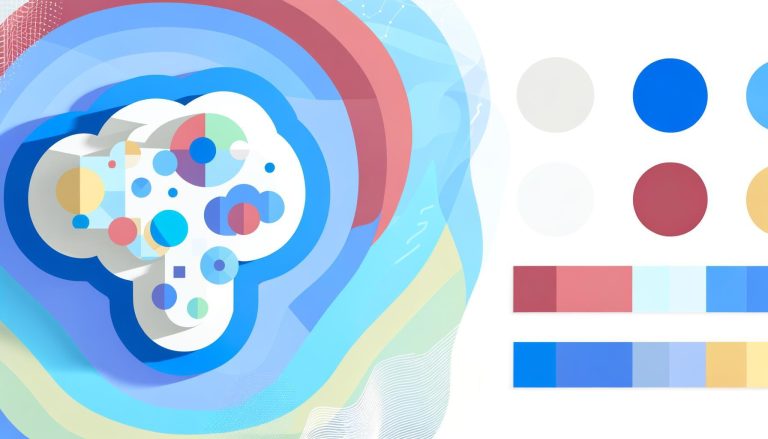Understanding and managing schizotypal personality disorder (STPD) can be a complex process, but the advent of AI technology has made it considerably easier. This article explores various AI support options available to help individuals with STPD and provide valuable information for better understanding and management of the condition. We will cover the technology behind these solutions, their benefits, and practical tips for maximizing their potential.
What is Schizotypal Personality Disorder?
Schizotypal Personality Disorder (STPD) is a chronic mental health condition characterized by pervasive patterns of social and interpersonal deficits. Individuals with STPD often experience discomfort in close relationships, cognitive or perceptual distortions, and eccentricities in behavior. Symptoms can include:
- Odd beliefs or magical thinking
- Unusual perceptual experiences
- Suspiciousness or paranoid ideation
- Inappropriate or constricted affect
- Odd, eccentric, or peculiar behavior
- Lack of close friends or confidants other than close relatives
- Excessive social anxiety
Given these complexities, managing STPD often requires a multi-faceted approach involving psychotherapy, support systems, and, increasingly, AI technology.
How AI Is Supporting the Understanding and Management of STPD
Diagnostic Tools and Predictive Analytics
One of the most direct applications of AI in managing STPD is through diagnostic tools and predictive analytics. These tools utilize vast datasets to identify patterns and symptoms that may indicate the presence of STPD. AI-driven diagnostic tools help by:
- Offering preliminary screenings and assessments
- Identifying signs and symptoms based on user inputs
- Providing probabilistic diagnoses based on data
These tools can serve as a first step in seeking professional help, making it easier for individuals and their families to recognize the condition early.
Personalized Content and Resources
AI can curate personalized content and resources tailored to the specific needs and circumstances of someone with STPD. This can include:
- Articles and research papers
- Video tutorials and webinars
- Interactive guides and self-help techniques
By analyzing user preferences and behaviors, AI systems can recommend the most relevant content, aiding in the educational aspect of managing the disorder.
Virtual Therapy and Counseling
Virtual therapy and counseling are becoming increasingly popular as AI chatbots and virtual therapists offer more accessible mental health support. These AI systems are trained to engage in empathetic and supportive conversations, providing services such as:
- Real-time text-based therapy sessions
- Emotionally intelligent responses and empathy
- Guided therapeutic practices and exercises
While not a replacement for human therapists, AI-driven virtual therapy can be an excellent supplementary resource for those with STPD.
Mood and Habit Tracking
AI-based apps designed for mood and habit tracking can be particularly beneficial for individuals with STPD. These tools allow users to:
- Log mood fluctuations and triggers
- Track habits and daily routines
- Analyze trends and patterns over time
With this data, users and their healthcare providers can better understand the impact of various factors on their mental health, leading to more informed decisions about treatment and management strategies.
Real-Time Monitoring and Alerts
Another innovative use of AI is in real-time monitoring and alerts. These systems can continuously monitor a user’s behavior and emotional state, providing instant alerts if potential issues are detected. Benefits include:
- Immediate notifications of mood swings or behavioral changes
- Preventive measures for managing crises
- Enhanced support through connected devices and wearables
This proactive approach allows for timely interventions, potentially preventing more severe episodes or crises.
Interdisciplinary Research and Development
AI is also significantly contributing to the ongoing research and development of treatments for STPD. Through the collection and analysis of large-scale data, researchers can:
- Identify potential new treatment methods
- Understand the genetic and environmental factors at play
- Develop more effective therapeutic interventions
This not only aids in better treatments but also fosters a deeper understanding of the disorder itself.
Benefits of AI in Managing STPD
The incorporation of AI technologies offers numerous benefits for understanding and managing STPD:
- Accessibility: AI tools provide easier access to mental health resources and support, especially for those who might not have immediate access to therapists.
- Personalization: AI-driven systems can tailor support and resources to the individual’s specific needs and circumstances, improving the effectiveness of management strategies.
- Real-time Support: Real-time monitoring and alerts ensure that potential issues are addressed promptly, reducing the risk of severe episodes.
- Data-Driven Insights: The data collected through AI tools can offer compelling insights into the patterns and triggers associated with STPD, leading to better-informed treatment plans.
Conclusion
AI support for understanding and managing schizotypal personality disorder is an exciting and rapidly growing field. From diagnostic tools and personalized resources to virtual therapy and real-time monitoring, AI offers a wide range of solutions to help individuals living with STPD. The benefits of these technologies are profound, offering greater accessibility, personalization, and real-time support.
For those seeking to better understand and manage STPD, integrating AI tools and applications can be a valuable step towards achieving a more balanced and fulfilling life. While these technologies are not a replacement for professional medical advice and therapy, they complement traditional treatments and offer enhanced support and insights.
If you are interested in exploring such AI solutions further, the Zenora app provides several features designed to assist with mental health management, including mood and habit tracking, personalized content, and virtual counseling. These tools can contribute to a more comprehensive approach to managing schizotypal personality disorder.





